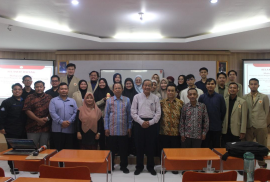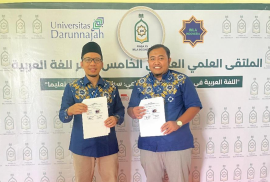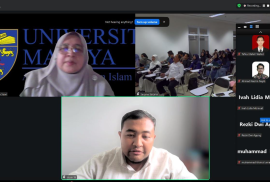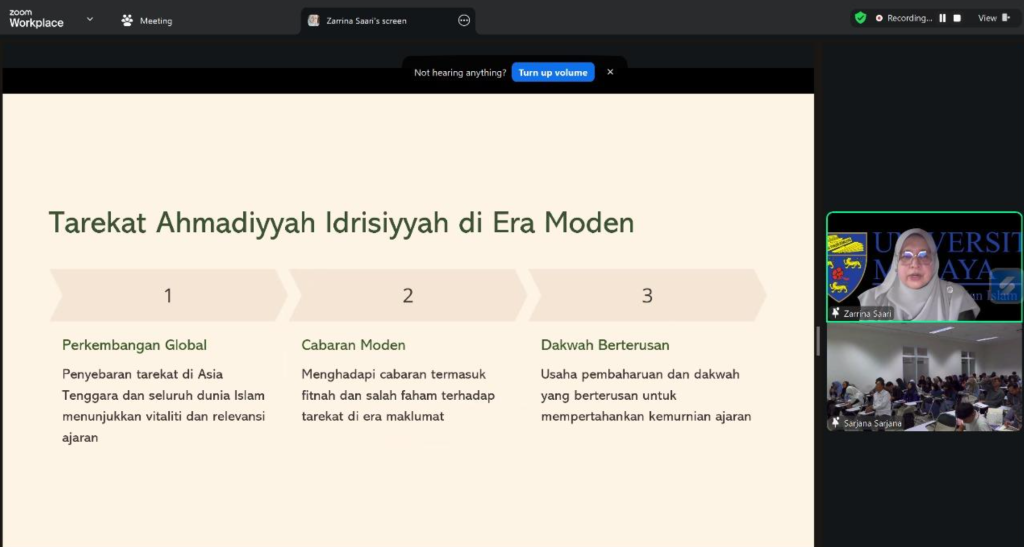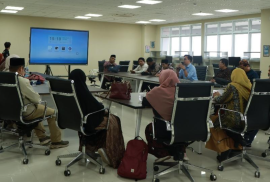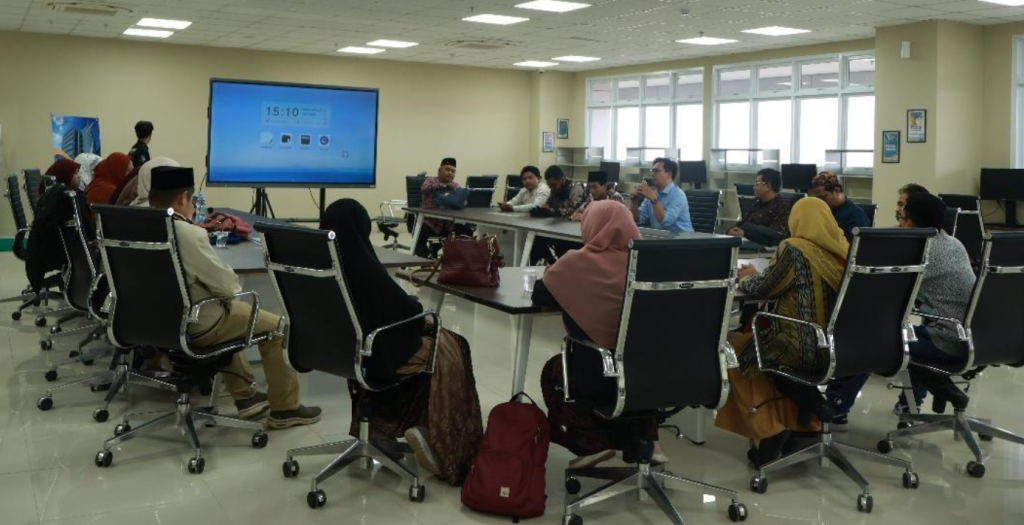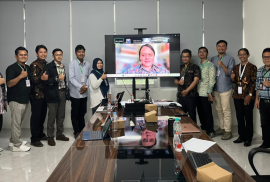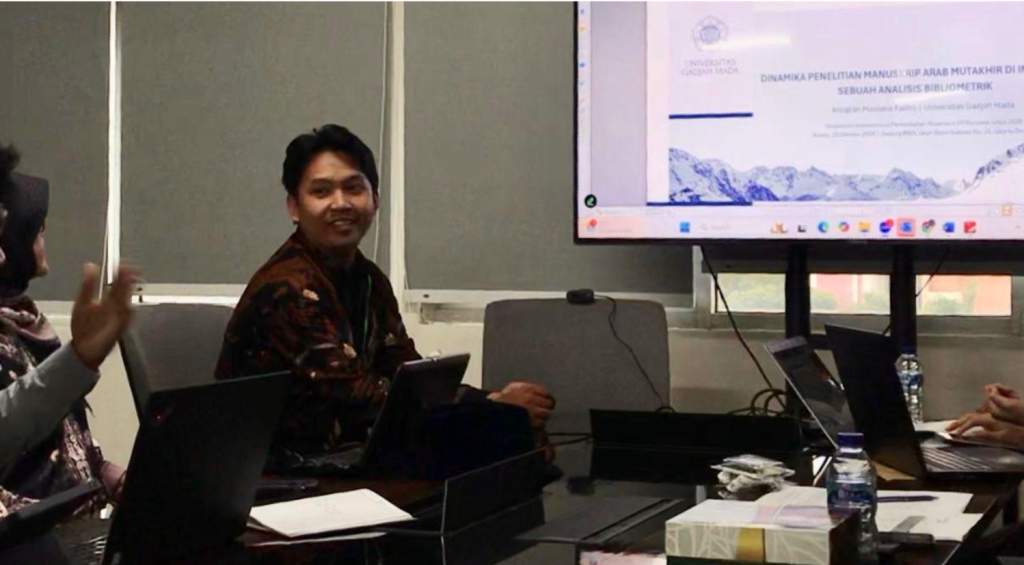On 19 August 2025, the Master’s Programme in Middle Eastern Cultural Studies held a Welcome Event for New Students of the Middle Eastern Cultural Studies Programme for the First Semester of the 2025/2026 Academic Year. Held in the Multimedia Room of the Margono Building, Faculty of Cultural Sciences (FIB) at 09:00 WIB, the event was attended by lecturers such as Prof. Dr. Sangidu, M.Hum., Prof. Dr. Fadlil Munawwar Manshur, M.S., Dr. Zulfa Purnamawati, M.A., Dr. Mahmudah, M.Hum., Dr. Arief Ma’nawi, M.Hum., Dr. Imam Wicaksono, Lc., M.A., Dr. Muhammad Zakki, and all active students of the Master of Middle Eastern Cultural Studies Programme.
The Head of the Intercultural Department of FIB UGM, Prof. Dr. Sangidu, M.Hum., opened the event by welcoming students to begin this semester’s teaching and learning activities with enthusiasm and excitement. In addition, he also introduced several lecturers who were present and shared their academic experiences, particularly in the field of Middle Eastern Cultural Studies.
Dr. Mahmudah, Secretary of the Intercultural Department, gave a presentation on the curriculum at the end of the event. She stated that ‘Middle Eastern culture-based research can make a significant contribution in addressing global challenges such as peace, social justice, and sustainability.’ In addition, she emphasised that graduates of this programme have great opportunities for careers in academia, research, diplomacy, or other professions that support the achievement of the SDGs.
After a group photo, the new students were introduced, and the welcoming event came to an end. It is hoped that through this welcoming event, students will continue to foster enthusiasm for developing their knowledge through extensive research and scientific publications. New students are expected to become pioneers of change in the field of Middle Eastern cultural studies and contribute to the achievement of sustainable development goals at the local and global levels with a spirit of cooperation and innovation.
Author: Amanda Jesisca

